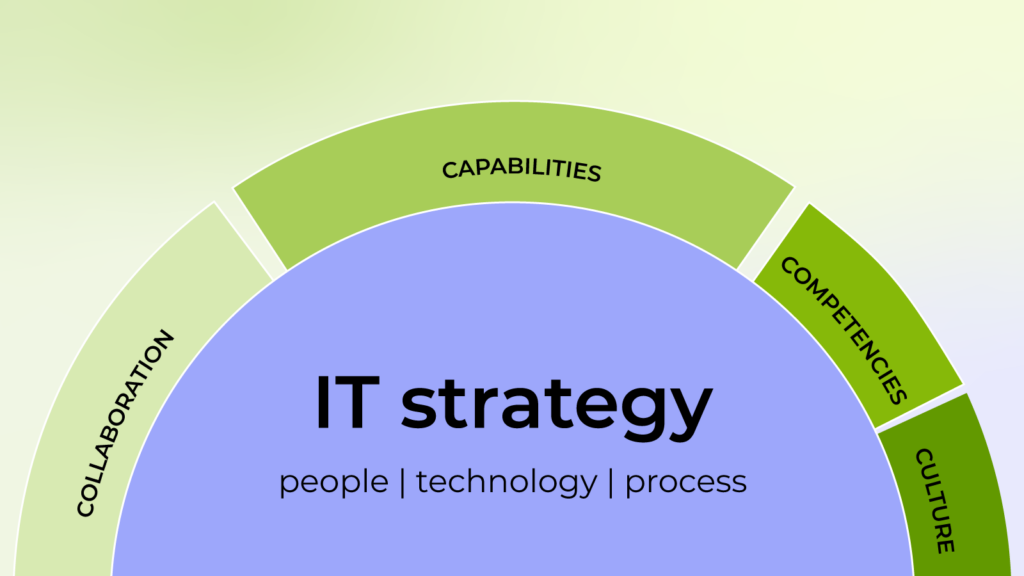How skills management software transforms organizational efficiency

An organization’s core power often stems not from its tangible assets or financial resources but from its human capital—the gifted individuals propelling its mission.
Talent, characterized by its layers of creativity, ingenuity, and proficiency, emerges as the cornerstone of any organization. However, given the fluid and evolving nature of such a resource, how can enterprises ensure they’re tapping into its entirety?
How can they adeptly handle talent management, making certain that every individual’s competencies are both acknowledged and deployed efficiently?
This is where the capabilities of Skills Management Software come into play. This cutting-edge talent management software is crafted to connect the dots between talent capabilities and organizational requirements, ensuring that companies truly leverage the depth of expertise available to them.

- Introduction to skills management software
- Features of effective skills management software
- Benefits of implementing skills management software
- Case study; Orange maximizes employee potential and drives business success with DevSkiller’s skills management software
- Overcoming challenges in skills management
- Conclusion
- FAQs
Introduction to skills management software
Over the past few years, there has been a marked shift in how organizations handle human resource management. This change is predominantly influenced by two primary drivers:
- Technological advancements: The onset of the digital age has ushered in a plethora of innovative HR tools, with skills management software being at the forefront. This software enables organizations to map out the skills of their employees, identify gaps, and invest in targeted training programs.
With real-time data analytics, these platforms offer actionable insights into workforce capabilities, helping HR teams to develop employee skills and align talent with strategic goals more effectively.
- Changing workforce dynamics: Modern employees are no longer just seeking a paycheck; they’re looking for growth opportunities and continuous learning. With the increasing diversity and evolving expectations of the workforce, there’s a pressing need for organizations to understand and cater to these aspirations.
Skills management software plays a pivotal role here, allowing companies to track skill development, forecast future skill needs, develop and tailor learning and development programs accordingly.
Given these factors, the integration of skills management software has become imperative for forward-thinking organizations.
By leveraging its capabilities, businesses can ensure they’re not only keeping pace with the changing HR landscape but are also optimally utilizing and nurturing their most valuable asset – their talent.
The rise of digital transformation
The concept of “digital transformation” has moved beyond being a mere buzzword in the corporate arena.
Today, it signifies a genuine metamorphosis that businesses globally are wholeheartedly adopting. As sectors transition to more digitally-focused models, there emerges an intensified need for a skilled workforce adept in digital tools.
However, it’s not just about having digital familiarity; it’s about mastering these tools and navigating the digital world with agility and expertise.
This is where the integration of soft skills into management software becomes crucial. As businesses undergo this digital shift, they require a tool to ensure their teams are not only keeping up but excelling.
Skills management software provides managers a structured approach to identify existing skill sets, pinpoint gaps, and facilitate targeted training.
By utilizing its features, companies can ensure their teams are not just digitally literate but digitally proficient, ready to harness the full potential of technological advancements.
As the digital era continues to evolve, businesses and their employees must be equipped with the right tools, like skills management software, to meet the demands and seize the opportunities it presents.
Importance of skills management in organizations
Possessing the appropriate skills becomes more than just an asset—it’s a necessity. The landscape of business is ever-changing, and organizations must ensure that their teams are equipped with the expertise needed for the task at hand.
It’s not just about having skills; it’s about having the right ones, strategically positioned to maximize impact.

The difference between leading the industry or trailing behind often hinges on this crucial alignment of talent and opportunity. In this competitive environment, being adequately skilled isn’t just an advantage; it’s the lifeline that defines an organization’s success or stagnation.
Features of effective skills management software
To truly harness the potential of an organization’s talent, one needs a robust skills management system. Let’s explore some must-have skills database features:
Skills inventory
A comprehensive employee skills management platform meticulously captures the varied skill sets, educational backgrounds, and niche expertise of every team member in an organization.
This organized system acts as an invaluable asset, offering businesses a precise and extensive snapshot of the talent at their disposal. With this detailed archive of skills data powered by skills management software, organizations are empowered to make discerning choices, ensuring that projects or tasks align with individuals whose strengths and skills perfectly match the requirements.
At its core, this platform is a pivotal instrument that refines talent allocation and enhances the precision of workforce assignment.
Gap analysis
The competency management software adeptly identifies the particular skills and proficiencies an organization needs to achieve its goals. In doing so, it illuminates the disparities between skills matrix the current talent inventory and the desired skill framework.
Such clarity not only sharpens the recruitment strategies, ensuring that incoming talent aligns with the identified skill gaps and voids, but also paves the way for bespoke training agendas.
These personalized growth plans are curated to elevate the existing workforce, making certain they are primed to meet the ever-shifting challenges of the corporate terrain.
In its essence, this software offers a methodical blueprint for talent enhancement, guaranteeing that the right competencies are positioned aptly when and where they are most needed.
Training and development modules
Offering tailored courses and training programs, a skills management tool is adeptly crafted to address the specific shortfalls (and close skill gaps) within an organization.
By zeroing in on these discerned deficiencies, the training modules become exponentially more potent, ensuring that employees hone precisely the skills gaps and the competencies they’re missing.
This focused methodology not only amplifies the success of employee skill development but also fortifies the organization’s talent reservoir, preparing it to tackle present and forthcoming challenges.
In essence, it crafts a custom-tailored learning journey that seamlessly aligns with both the individual’s aspirations and the strategic growth objectives of the organization.

Benefits of implementing skills management software
Implementing this kind of software is not just about tracking skills; it’s about optimizing talent for organizational success. Some of the key benefits skills tracking software include:
Enhanced organizational efficiency
When organizations strategically match their employees’ skills and expertise with their overarching business objectives, they pave the way for enhanced operational efficiency.
This deliberate alignment ensures that every team member is working towards a common goal, utilizing their unique strengths to contribute to the company’s vision.
As a result, not only are individual tasks executed more effectively, but the organization as a whole also operates more cohesively.
It’s like fitting the pieces of a puzzle together; when talent is positioned in sync with business aspirations, the entire enterprise thrives, maximizing productivity and achieving optimal outcomes across all tiers.
Improved employee productivity
Empowering employees with specific skill sets through focused training enables them to thrive in their designated roles. Armed with the right expertise and tools, they tackle their responsibilities with assuredness and accuracy.
This proficiency not only elevates the caliber of their work but also amplifies their operational speed. As they master their roles, both the rate and excellence of their contributions escalate, resulting in elevated organizational productivity.
Fundamentally, a well-trained team forms the bedrock of a prosperous organization, guaranteeing smooth task execution and expedited goal attainment.
Data-driven decision making
With precise and comprehensive data regarding the skills and expertise of their workforce at their fingertips, organizational leaders are better positioned to make strategic decisions.
This wealth of information provides a clear picture of the company’s talent landscape, enabling leaders to identify strengths, pinpoint areas for improvement, and allocate resources effectively.
Such data-driven decision-making ensures that actions taken are both timely and relevant, optimizing talent deployment and fostering growth.
Essentially, when leaders base their strategies on solid data about their team’s capabilities, the ripple effect of those decisions positively impacts the entire organization’s trajectory.
Case study; Orange maximizes employee potential and drives business success with DevSkiller’s skills management software
Orange, a telecommunications leader, recognized this need for evolution and took a proactive step by collaborating with DevSkiller on a transformative skills management project. Their objective? To harmoniously align the workforce with the company’s forward-looking digital strategy.
Goals:
- Empower employees with the essential skills to unlock their full potential.
- Bolster employee satisfaction, leading to increased retention rates.
- Invest holistically in their team by synchronizing employee development plans with overarching company goals.
A representative from Orange emphasized their commitment, stating, “At Orange, DevSkiller is an integral component of our human capital strategy. Through skills management, we aim to harness quality data, ensuring our training and internal mobility programs directly reflect our business aspirations.”
Challenges faced:
- Embracing the future: Orange’s ambitious endeavor involved a pivotal shift from traditional telecom services to advanced technologies like 5G and IoT. This transition was paramount to maintain a competitive edge in the rapidly evolving market.
- Skill alignment: The task was clear – align the vast pool of employee skills with the company’s burgeoning digital strategy.
- Enhancing job satisfaction: Orange aimed to elevate employee morale by introducing thorough assessments, immersive onboarding experiences, and avenues for self-assessment and career progression.
- Addressing skill gaps: The identification and bridging of skill gaps through focused upskilling and reskilling became a priority.
- Support for managers: It was essential to equip managers with the requisite tools to actualize the digital talent strategy, thereby fostering business growth.
Anna Got, Culture Change Manager at Orange, shared their initial strategy, saying, “When we initiated TalentBoost, our plan was to roll it out to 200 employees. But the overwhelming interest led us to quadruple this number for the pilot.”
Solution & implementation
To address these challenges, Orange integrated DevSkiller, a robust skills management platform. This platform was tailor-made to synchronize training and internal mobility initiatives with business goals. It offered a holistic solution for skill development, provided industry benchmarks, and regularly updated data in tune with the skills lifecycle. Personalized employee development pathways were crafted to pinpoint and bridge skill deficits.
One of their standout programs was ‘SkillsUp’ powered by DevSkiller.
Results & benefits:
- High employee satisfaction & engagement: An astounding 98% completion rate for onboarding sessions was recorded, showcasing the unwavering dedication and enthusiasm of the employees.
- Enhanced visibility: 95% of the participants actively mapped their skill data, paving the way for clear visualization and future-centric development.
- Proactive engagement in career development: Employees were deeply invested in their growth, with the median time spent on self-assessment being 21 minutes.
In conclusion, Orange’s collaboration with DevSkiller underscores the transformative power of strategic skills management in driving business success and employee fulfillment.
Overcoming challenges in skills management
While the benefits are clear, implementing a skills management system isn’t without its challenges:
Resistance to change
When introduced to new technological systems or processes, employees often approach with a sense of caution. There’s an underlying apprehension that these systems could be implemented to keep a closer watch on their activities or, even more concerning, to eventually replace them altogether.

This natural resistance stems from a fear of the unknown and concerns about job security. It’s essential for organizations to address these fears head-on, ensuring transparency and communicating the true intent behind adopting new systems – which is typically to enhance efficiency and collaboration, rather than to sideline the human workforce.
Integrating with existing systems
Integrating a newly adopted software into an organization’s pre-existing HR and IT infrastructure presents a multifaceted challenge.
The task goes beyond mere technical implementation; it requires careful planning, coordination, and testing to ensure that the new system operates harmoniously with the established platforms.
It’s not just about compatibility on a software level; it’s also about ensuring that data flows smoothly, processes remain uninterrupted, and user experience is enhanced rather than hampered.
Given the intricacies involved, achieving a seamless integration often demands a blend of technological expertise, strategic foresight, and meticulous execution.
Conclusion
Gaining a competitive edge requires making the most of every available resource. Amidst this backdrop, skills management software emerges as a pivotal tool. It’s not just another tech solution; it’s a strategic enabler that enhances how talent is harnessed and deployed.
By providing a comprehensive view of the workforce’s capabilities and aligning them with organizational goals, this software amplifies efficiency across the board.
It’s a catalyst that not only propels businesses to achieve immediate objectives but also positions them for sustained growth and success in the long run.
Discover how DevSkiller skills management software can help you.
Schedule a demo with one of our product experts or watch this quick 5-min demo video to find out more.
FAQs
- What is a skill management tool?
It’s a digital solution that helps organizations manage, track, and optimize the skills of their workforce. - Why is skills management important?
In a rapidly changing business environment, having the right skills in place is crucial for success. - How does skills management software enhance efficiency?
By aligning talent with organizational goals, ensuring employees have the necessary skills, and facilitating data-driven decision-making. - Are there challenges in implementing this software?
Yes, challenges can include resistance to change and integration with existing systems. - How can organizations overcome these challenges?
Through effective communication, training, and ensuring seamless integration with existing systems.
Share post